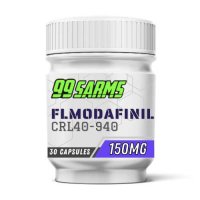Unlock Your Cognitive Potential with 99SARMS Nootropics
Elevate your mental acuity and achieve peak cognitive performance with 99SARMS Nootropics. Our scientifically formulated capsules and powders are engineered to support memory, focus, and brain health. Embrace the power of precision nootropics designed for discerning individuals seeking an intellectual edge.
Key Benefits:
- Enhanced Cognitive Function: Experience improved memory retention and faster information processing.
- Increased Focus & Concentration: Achieve laser-sharp focus for intense work sessions or study periods.
- Brain Health Support: Fortify your neural pathways for long-term cognitive wellbeing.
Product Features:
- Pure Ingredients: Each capsule contains rigorously tested compounds for maximum purity and potency.
- Flexible Dosage: Tailor your intake with precise dosage options in both capsules and powders.
- Technical Expertise: Benefit from our commitment to research-backed nootropics that deliver real results.
99SARMS offers a professional-grade solution for those who demand excellence from their supplements. Trust in our straightforward, technical approach to enhance your mental performance today. Shop now and transform your cognitive capabilities with 99SARMS Nootropics—where clarity meets intelligence.
Discover the pinnacle of nootropic innovation. Choose 99SARMS for a smarter you.
Bestsellers
Nootropics 99 SARMS: The Shocking Benefits You Need to See to Believe

Best Nootropics by Popularity
Nootropics, also known as cognitive enhancers or smart drugs, are substances created to improve different aspects of mental function. These compounds have become very popular as people look for ways to boost their mental performance. Among the best nootropics, there are a few names that stand out for being effective and widely used.
Top Nootropics on the Market
- FLModafinil: This drug is praised for its ability to fight tiredness and improve alertness.
- PhenylPiracetam: An upgrade of the first racetam drug, which helps with memory and brain protection.
- Noopept: Provides a strong boost to cognitive function and works faster than many other nootropics.
- NSI-189: Recognized for its stimulating effects and ability to enhance physical performance along with cognitive benefits.
- Coluracetam: Popular for its anxiety-reducing properties and promotion of creativity.
These nootropics have become popular not only among those looking to improve their focus but also among students, professionals, and athletes who want to boost their memory retention and overall brain health.
Understanding Nootropics and How They Work
Nootropics influence the brain's intricate system of neurotransmitters, receptors, and enzymes. They can:
- Regulate levels of neurotransmitters like acetylcholine, dopamine, and glutamate
- Improve blood flow to the brain, leading to better oxygen supply to brain cells
- Support brain cell health and potentially stimulate the growth of new brain cells (neurogenesis)
Increasing Interest in Cognitive Enhancement
The desire to optimize one's mental abilities has resulted in a growing interest in nootropics. This trend can be seen across different groups of people, from older adults aiming to maintain their cognitive function to younger individuals striving for peak mental performance. The appeal of these substances lies in their potential to significantly increase productivity and brain capacity.
By focusing on potent products with strict purity standards, 99 SARMS is at the forefront of this expanding field. With advanced technology and innovation dedicated to unlocking human potential, the brand serves a loyal community committed to enhancing their cognitive abilities through thorough research and active participation.
What Are Nootropics Effects on the Brain
Nootropics are drugs that interact with receptors in the brain to improve cognitive abilities. They do this by impacting neurotransmitter function, which is crucial for various brain functions.
How Nootropics Impact the Brain
Nootropics can have several effects on the brain, including:
- Enhanced Memory: Nootropics can improve memory by influencing neurotransmitter levels involved in memory formation and retrieval.
- Increased Focus: These substances may boost focus by increasing blood flow and oxygen supply to the brain, ensuring optimal neuron functioning.
- Improved Mood: Many users experience a better mood while taking nootropics, possibly due to their impact on neurotransmitters responsible for mood regulation.
- Heightened Creativity: Some nootropics are believed to enhance creativity, possibly by improving brain connectivity and neuroplasticity.

The Role of Neurotransmitter Receptors
To understand how nootropics work, we need to look at their interactions with specific receptors in the brain. Neurotransmitter receptors are one such target for these substances. Neurotransmitters act as chemical messengers in the brain, transmitting signals between neurons. By modulating the function of these neurotransmitters, nootropics can alter signal transmission and produce cognitive enhancements.
Beyond Cognitive Performance: Neuroprotection
It's important to note that nootropics aren't just about boosting cognitive performance. They also show potential in protecting the brain from damage and supporting its overall health. By safeguarding neurons and promoting their well-being, these substances could offer long-term benefits for brain function.
The Complex Science Behind Nootropic Effects
Deciphering what nootropics are and how they affect the brain requires a deep dive into the science of their interactions with our neural circuitry. From enhancing cognitive abilities to promoting brain health, it's clear that nootropics have a wide range of potential effects that could be utilized for better mental performance and overall brain health.
3. Potential Benefits of Nootropic Supplements for Neurological Conditions
Nootropic supplements are gaining attention for their potential to improve brain function, especially in people with neurological conditions. Here are some ways these supplements may benefit individuals with specific conditions:
Alzheimer's Disease
Alzheimer's disease is known for its impact on memory and thinking skills. Research suggests that certain nootropic supplements could have a positive effect on individuals with Alzheimer's:
- Preserving Cognitive Function: Some evidence indicates that nootropics might help slow down the decline in cognitive abilities associated with Alzheimer's.
- Protecting Brain Cells: Certain compounds found in nootropic supplements might have neuroprotective properties, potentially shielding brain cells from damage.
While more studies are needed, these findings offer hope for using nootropics alongside traditional treatments for Alzheimer's disease.
Schizophrenia
Schizophrenia is a complex mental disorder characterized by symptoms such as hallucinations, delusions, and difficulties in thinking clearly. Nootropic supplements could potentially play a role in improving cognitive function and reducing certain symptoms related to schizophrenia:
- Enhancing Cognitive Abilities: Some research suggests that adding nootropics to standard antipsychotic treatment might lead to improvements in cognitive performance among individuals with schizophrenia.
- Easing Negative Symptoms: There is limited evidence indicating that certain nootropics could help alleviate negative symptoms like social withdrawal or lack of motivation.
While more research is needed to fully understand the effects of nootropics on schizophrenia, these initial findings raise interesting possibilities.
Stroke Recovery
After experiencing a stroke, many individuals face challenges in regaining their motor skills and cognitive abilities. Nootropic supplements are being studied as potential aids in stroke recovery:
- Supporting Brain Repair: Researchers are exploring how certain nootropics might promote the healing and regeneration of brain tissue after a stroke.
- Improving Motor Skills: Some preliminary studies suggest that specific nootropics could have a positive impact on motor function, potentially helping stroke survivors regain their mobility.
While the research is still in its early stages, the potential benefits of using nootropics as part of post-stroke rehabilitation are encouraging.
Attention Deficit Hyperactivity Disorder (ADHD)
ADHD is a neurodevelopmental disorder characterized by difficulties in maintaining attention, controlling impulses, and managing hyperactivity. Nootropic supplements offer a unique approach to addressing these symptoms:
- Enhancing Focus: Some studies indicate that certain nootropics might improve focus and attention span in individuals with ADHD.
- Regulating Attention Mechanisms: By targeting specific neurotransmitter systems in the brain, certain nootropics could potentially help normalize the disrupted attention processes seen in ADHD.
While more research is needed to determine the effectiveness of nootropics for ADHD, these initial findings provide hope for alternative treatment options.
As we delve deeper into the potential uses of nootropic supplements, it's important to remember that rigorous scientific studies are necessary to validate their effects. While there is growing evidence supporting their benefits in various neurological conditions—from Alzheimer's disease and schizophrenia to stroke recovery and ADHD—we must wait for more conclusive results before drawing definitive conclusions. Nonetheless, the interest in these substances as tools for improving brain health and addressing neurological challenges continues to grow.

4. Enhancing Memory and Cognitive Function with Nootropics For ADHD
Attention Deficit Hyperactivity Disorder (ADHD) impacts memory, attention, and cognitive function, often hindering academic and professional performance. To address these challenges, clinical trials have scrutinized nootropics—substances known for memory enhancement and cognitive improvement.
The Role of Clinical Trials
Clinical studies are pivotal in understanding the effects of nootropics on individuals with ADHD. Evidence suggests that certain nootropics can ameliorate cognitive deficits associated with the disorder:
- Modafinil: A non-traditional stimulant that has shown efficacy in improving attention and alertness.
- Methylphenidate: Commonly recognized as Ritalin, it is extensively researched for its benefits in enhancing memory and focus.
These substances have garnered attention due to their potential role in mitigating symptoms of ADHD, with research pointing towards significant improvements in cognitive functions.
Nootropic Substances Under Investigation
Prominent among the nootropics meaning to improve cognitive functions are PRL-8-53 and Noopept:
- PRL-8-53: Emerging evidence indicates this compound may enhance short-term memory.
- Noopept: Recognized for its potential to boost memory formation, retention, and recall capabilities.
The exploration into these substances is bolstered by clinical trials aiming to quantify their impact on cognitive enhancement.
Effects on Memory Formation and Recall
The interaction between nootropics and brain chemistry can lead to improved neural processes involved in learning:
- Altered neurotransmitter levels foster a conducive environment for memory formation.
- Enhanced blood flow to the brain supports neuronal health and function.
Clinical trials serve as a foundation for confirming these effects, providing measurable outcomes of how nootropics influence cognitive abilities.
Challenges in Current Research
Despite promising findings, research into the efficacy of nootropics for ADHD faces limitations:
- Sample Size: Many studies have small cohorts, which may not represent the broader population.
- Duration: Long-term effects remain uncertain due to the short duration of most trials.
- Diversity: Trials often focus on a narrow demographic, overlooking varied responses across different age groups and backgrounds.
Acknowledging these constraints underscores the necessity for comprehensive research to establish long-standing safety profiles and effectiveness of nootropic supplements.
Future Directions
Continued investigation into the role of nootropics for ADHD is fundamental. As researchers strive to substantiate claims through rigorous clinical trials, there is cautious optimism regarding these compounds' ability to offer cognitive respite for those affected by ADHD. Ongoing analysis will determine whether these substances can reliably enhance memory function while maintaining a favorable safety profile.
5. Nootropics for Focus: Boosting Focus and Mental Performance
In the quest for optimal cognitive performance, individuals are turning to nootropics for focus enhancement. These potent compounds have demonstrated remarkable potential in bolstering mental clarity, improving attention span, and enhancing motivation.
How Nootropics Enhance Focus
A key function of nootropics lies in their ability to stimulate cognitive processes such as memory and attention. By acting on various neurochemical pathways, nootropics can foster an environment conducive to heightened mental performance. This results in improved focus and concentration, allowing for increased productivity.
Nootropics, such as racetams and modafinil, target specific neurotransmitters in the brain involved with focus and mental performance. Racetams, for example, influence glutamate and acetylcholine receptors in the brain. Modafinil works by increasing dopamine levels, thereby promoting alertness.
Neurotransmitters serve as the brain's chemical messengers. By modulating their levels, nootropics facilitate better communication between neurons. This leads to a state of enhanced mental clarity and alertness.

Mechanisms of Action
Understanding the neurochemical processes that nootropics utilize to promote heightened mental clarity is crucial. The primary mechanisms of action include:
- Modulation of Neurotransmitters: As mentioned earlier, nootropics can increase or decrease the levels of certain neurotransmitters. This can influence various cognitive functions – from mood to focus.
- Neuroprotection: Some nootropics provide a protective effect on neurons against damage and aging.
- Increased Blood Flow: Certain nootropics improve blood flow to the brain. This provides neurons with more oxygen and nutrients – key elements for optimal brain function.
Popular Nootropics for Focus
Several agents are recognized for their focus-enhancing properties:
- Modafinil: A powerful stimulant that increases wakefulness and alertness. It's particularly effective in improving focus over extended periods.
- L-Theanine: Often found in green tea, L-theanine promotes relaxation without causing drowsiness. When combined with caffeine, it can significantly improve focus and attention.
These are just a few examples of the many nootropics available for enhancing focus and mental performance. The journey to discovering the ideal nootropic is highly personal, as the effects can vary between individuals. The exploration of these agents underscores the rapidly evolving field of cognitive enhancement – a testament to the never-ending pursuit of human potential expansion.
6. How Nootropics Can Help with Brain Injury Recovery and Protection
Traumatic brain injury (TBI) can have long-lasting effects on cognitive function, making the recovery process challenging for patients. However, there is growing interest in the potential role of nootropics in supporting brain healing and protecting neural tissue from further harm.
How Nootropics May Benefit Brain Injury Recovery
1. Reducing Inflammation
Some nootropics have been found to have anti-inflammatory properties, which could be beneficial in mitigating the inflammatory response that occurs after a TBI. This is important because inflammation can worsen damage to neurons.
2. Preventing Cell Damage
By reducing oxidative stress, certain nootropics may help prevent cell death and support the survival of neurons following an injury.
3. Promoting Brain Plasticity
Certain types of nootropics may enhance neuroplasticity, which is the brain's ability to adapt and form new connections. This could assist in the repair process and the creation of new neural pathways.
4. Balancing Neurotransmitters
Maintaining proper levels of neurotransmitters is crucial for recovery after a brain injury. Some nootropics may play a role in regulating these chemical messengers to support the healing process.
Promising Nootropic Compounds for Brain Injury Recovery
While research is still ongoing, there are a few specific nootropic compounds that have shown promise in preclinical studies or limited clinical trials for their potential benefits in brain injury recovery:
- Citicoline: This compound has been found to improve outcomes after TBI by reducing membrane damage and promoting synaptic repair.
- Piracetam: Another widely studied nootropic, piracetam has shown efficacy in enhancing recovery after brain injuries.
It's important to note that these findings are still preliminary, and further research is needed to confirm their effectiveness. Additionally, determining the right dosages for therapeutic use is also an area of ongoing investigation.
Using Nootropics for Brain Injury Recovery: What You Need to Know
While nootropics offer hope in improving brain injury recovery, it's crucial to approach their use with caution and under the guidance of healthcare professionals:
- Nootropics should be considered as part of a comprehensive treatment plan that includes other therapies and interventions.
- Dosage and timing are important factors that need to be carefully determined based on individual needs and medical advice.
- Potential side effects and interactions with other medications should be taken into account before starting any nootropic regimen.
Remember, always consult with your healthcare provider before incorporating any new supplements or medications into your routine, especially if you have a pre-existing medical condition or are taking other medications.
7. What is a Nootropic Meaning: From Natural Compounds to Synthetic Drugs
When it comes to enhancing cognitive function, the term "nootropic" plays a significant role. It encompasses a wide range of substances, from naturally occurring compounds to man-made drugs, that have the potential to improve various aspects of brain performance.
Understanding Nootropics
A nootropic is a substance that can boost cognitive abilities such as memory, focus, and overall brain health. Dr. Corneliu E. Giurgea coined this term in the 1970s and established specific criteria for a substance to be classified as a nootropic:
- It should enhance learning and memory.
- It must protect the brain against physical or chemical damage.
- It should improve brain function even under challenging conditions.
- It must not have the typical side effects of neuro psychotropic drugs.
Natural/Nutraceutical-based Nootropics
This category includes natural compounds that have been found to have cognitive-enhancing properties. Some examples are:
- Omega-3 fatty acids: These essential fats play a crucial role in brain health by supporting the structure and function of neurons.
- Ginkgo biloba extracts: Derived from the leaves of an ancient tree, these extracts are believed to enhance blood flow and possess antioxidant effects, potentially benefiting cognitive function.
These natural substances are derived from food sources or plants and serve as an accessible option for individuals interested in improving their cognitive health using natural means.
Prescription/Pharmaceutical Nootropics
Certain drugs approved by the FDA have been shown to have nootropic effects, although they may be primarily prescribed for other medical conditions:
- Methylphenidate (Ritalin): This medication is commonly prescribed for ADHD but has also demonstrated effectiveness in enhancing attention and executive functions.
- Modafinil: Originally developed to treat narcolepsy, modafinil has gained attention for its ability to increase alertness and cognitive performance.
These pharmaceutical options typically require a doctor's prescription and supervision due to their potency and potential side effects.
Synthetic/Designer Nootropics
The emergence of synthetic nootropics has brought about more potent and targeted choices for cognitive enhancement. Some notable examples include:
- Racetams: This class of synthetic compounds, which includes piracetam, is known for its neuroprotective and memory-enhancing effects.
- Phenylpiracetam: Derived from piracetam with added stimulant properties.
- Noopept: A compound derived from peptides that is believed to be more powerful than piracetam in improving memory, learning capacity, and focus.
Synthetic nootropics often represent the latest advancements in cognitive enhancement research, showcasing the progress made in the field of neuroscience.
A Broad Spectrum
The variety of substances classified as nootropics demonstrates the different approaches available for enhancing cognition. Whether it's through natural compounds, pharmaceutical drugs, or synthetic alternatives, there are options for individuals looking to optimize their mental performance. Each category has its own advantages, risks, and mechanisms of action, providing opportunities for further exploration into how these substances interact with our brain.
As scientific knowledge continues to expand, our understanding of nootropics will also evolve—reflecting not just advancements in research but also society's increasing interest in improving cognitive abilities. Whether they originate from natural sources or are created in labs with precision, these compounds embody humanity's unwavering pursuit of intellectual growth.
8. The Future of Nootropic Research
The future of nootropics research holds immense potential. At its core, the focus is on discerning the long-term safety and potential side effects of these cognitive enhancers.
Understanding Long-term Safety and Side Effects
Most nootropics on the market today are generally considered safe when used as directed. However, the long-term safety profile of these substances remains a critical area for further research. This involves extensive clinical trials and user studies to identify any potential adverse effects that may manifest over prolonged use.
Innovative Formulations and Advanced Scientific Techniques
Researchers are not just focused on studying the existing range of nootropics but also on developing newer and safer alternatives. This includes leveraging advanced scientific techniques and innovative formulations to create potent yet safe cognitive enhancers.
Neuroimaging Techniques in Nootropic Research
A significant trend within scientific investigations on nootropics involves the use of advanced neuroimaging techniques to study their effects on brain activity patterns. These studies offer valuable insights into how different substances interact with various regions in the brain, thereby helping us understand their mechanisms of action better.
Ethical Implications
The rise in popularity of cognitive-enhancing substances has also ignited a debate about their ethical usage. Key points of discussion include fairness (especially in academic and professional settings), safety considerations, as well as questions surrounding personal autonomy. It is crucial that these issues are addressed to create a balanced perspective on the use of nootropics.
Taken together, it becomes clear that while we have made significant strides in understanding and harnessing the power of nootropics, there is still much to explore. The future indeed holds promising possibilities for this fascinating field.
9. Nootropics 99 SARMS: A Trusted Source for Quality Cognitive Enhancers
When it comes to buying nootropics online, it's important to choose a reputable vendor. This is crucial because the quality and safety of the product you receive depend on the vendor you choose.
Why Choose Nootropics 99 SARMS?
Nootropics 99 SARMS is a leading online supplier known for providing high-quality cognitive enhancers. They are not just a regular vendor; they are committed to being transparent, ensuring product integrity, and conducting thorough third-party testing.
Here are some reasons why Nootropics 99 SARMS stands out among other vendors:
- Quality Assurance: Nootropics 99 SARMS takes pride in delivering products of the highest quality. They subject each batch to strict testing protocols to ensure that the products are potent and pure.
- Transparency: With Nootropics 99 SARMS, there are no hidden surprises. They believe in being completely transparent by providing detailed information about their products and sharing lab reports for every item.
- Customer-Centric Approach: Their focus goes beyond just selling nootropics for sale. They prioritize customer satisfaction by offering excellent research support tailored to their clients' needs.
Why Trust the Source?
When exploring the world of nootropics, it's crucial to rely on trustworthy sources like Nootropics 99 SARMS. By doing this, you are ensuring:
- You're getting high-quality products that have been tested for potency and purity.
- You have access to all the necessary information about the products, including lab reports.
- You receive support from a vendor who values your satisfaction and is willing to assist you with any inquiries or concerns.
This not only guarantees that you're getting your money's worth but also provides assurance that you're investing in products that have been scientifically proven to be beneficial.
The Importance of Choosing the Right Vendor
As we continue to explore the potential of nootropics and how they can improve cognitive function, remember that the vendor you choose is just as important as the products themselves.
By selecting a trusted source like Nootropics 99 SARMS, you can have peace of mind knowing that you're making a wise investment in your brain health. So, when you're ready to buy nootropics online, make sure to consider the reputation and credibility of the vendor before making your purchase.
10. The Verdict on Nootropics: Unlocking Your Brain's Potential Responsibly
Nootropics, also known as cognitive enhancers or smart drugs, have been gaining popularity in the fields of personal development and bio-hacking. These substances claim to improve brain function and expand human cognition.
What to Consider When Exploring Nootropics
When it comes to delving into the world of nootropics, there are a few important factors to keep in mind:
- Make informed decisions: Before trying any nootropic, it's crucial to do your research and understand how it works, its potential benefits, and any possible risks involved.
- Be cautious: Like any substance that affects the body, nootropics come with their own set of potential advantages and drawbacks. It's important to approach them with caution and consider your individual circumstances.
The Pros and Cons of Nootropics
Let's take a closer look at the potential benefits and risks associated with nootropics:
- Potential benefits:
- Enhanced memory and focus
- Improved mood and creativity
- Potential risks:
- Headaches, nausea, or insomnia
- Possible adverse effects on health if misused or overused
Exploring the Wide Range of Applications
From Alzheimer's disease to ADHD to enhancing focus and mental performance for healthy individuals, nootropics offer intriguing possibilities for boosting brain function.
As you navigate this evolving field, remember that quality matters. Choose a reputable supplier like Nootropics 99 SARMS for high-quality cognitive enhancers.
A Holistic Approach to Brain Health
In conclusion, using nootropics responsibly is not just about gaining cognitive advantages; it's about taking a comprehensive approach to improving overall brain health.
By making careful choices, staying informed, and being mindful of your own body's response, you can unlock your brain's potential in a safe and responsible manner.



























